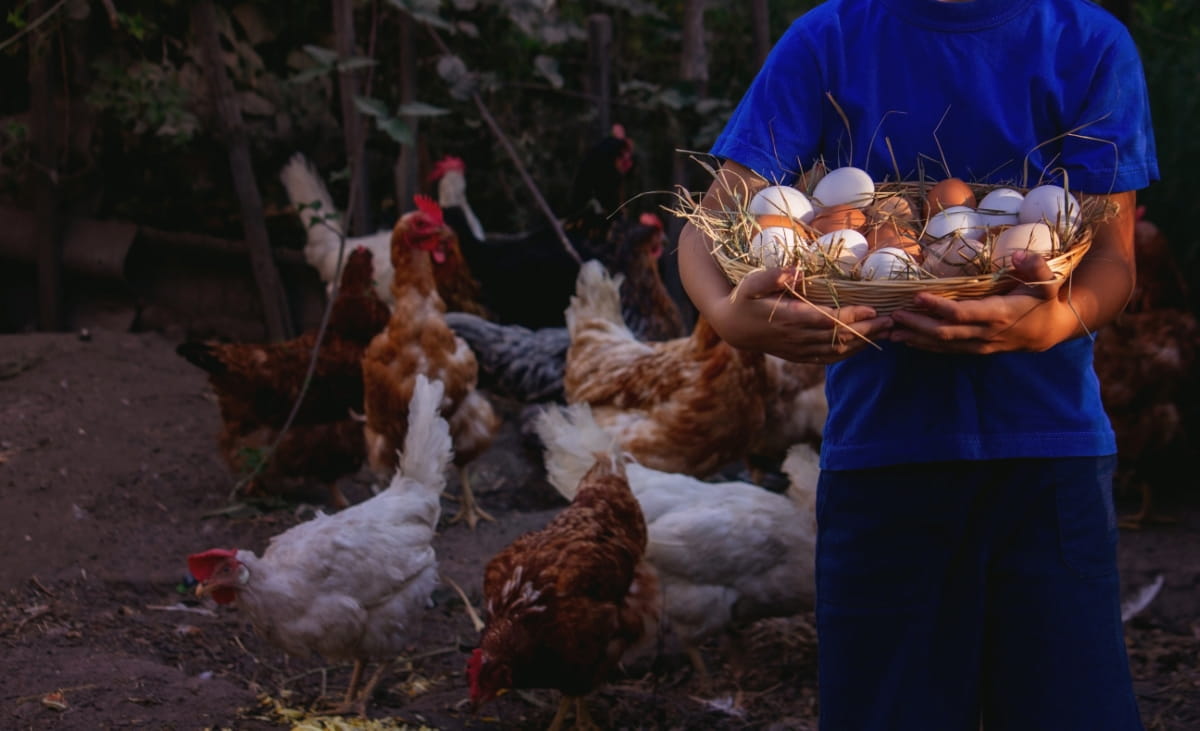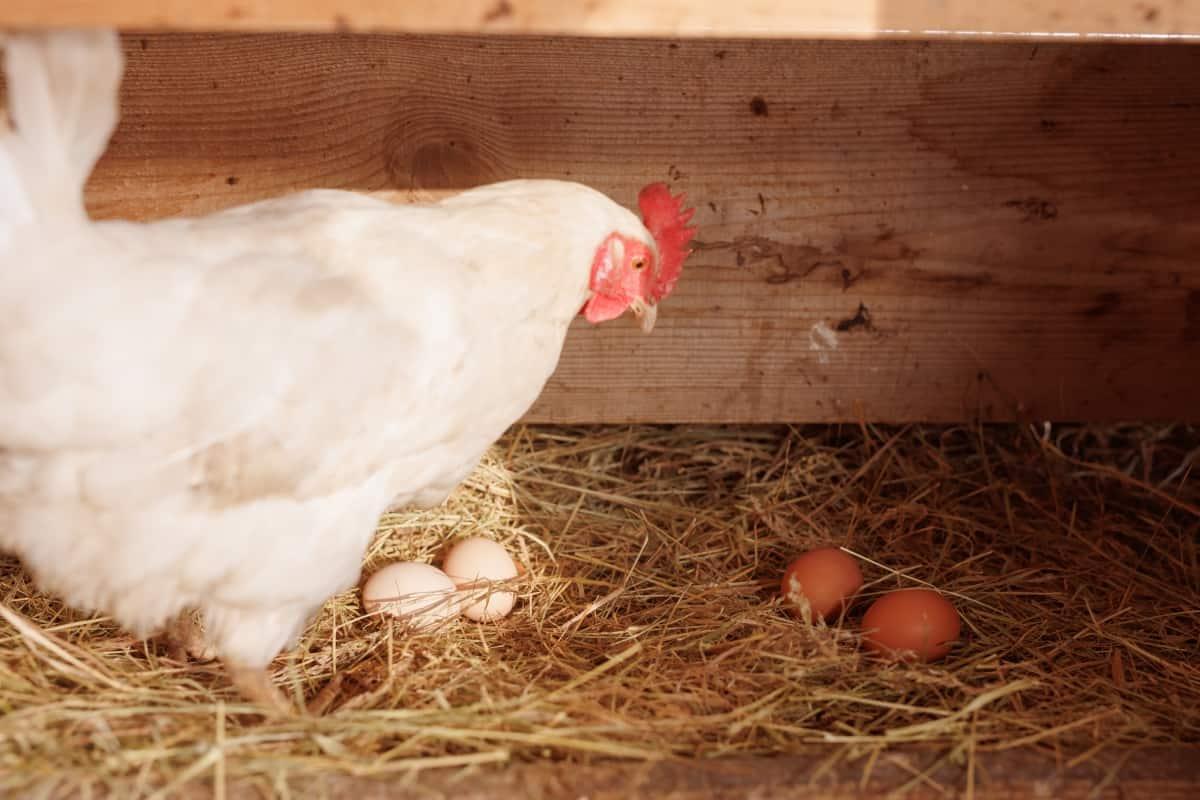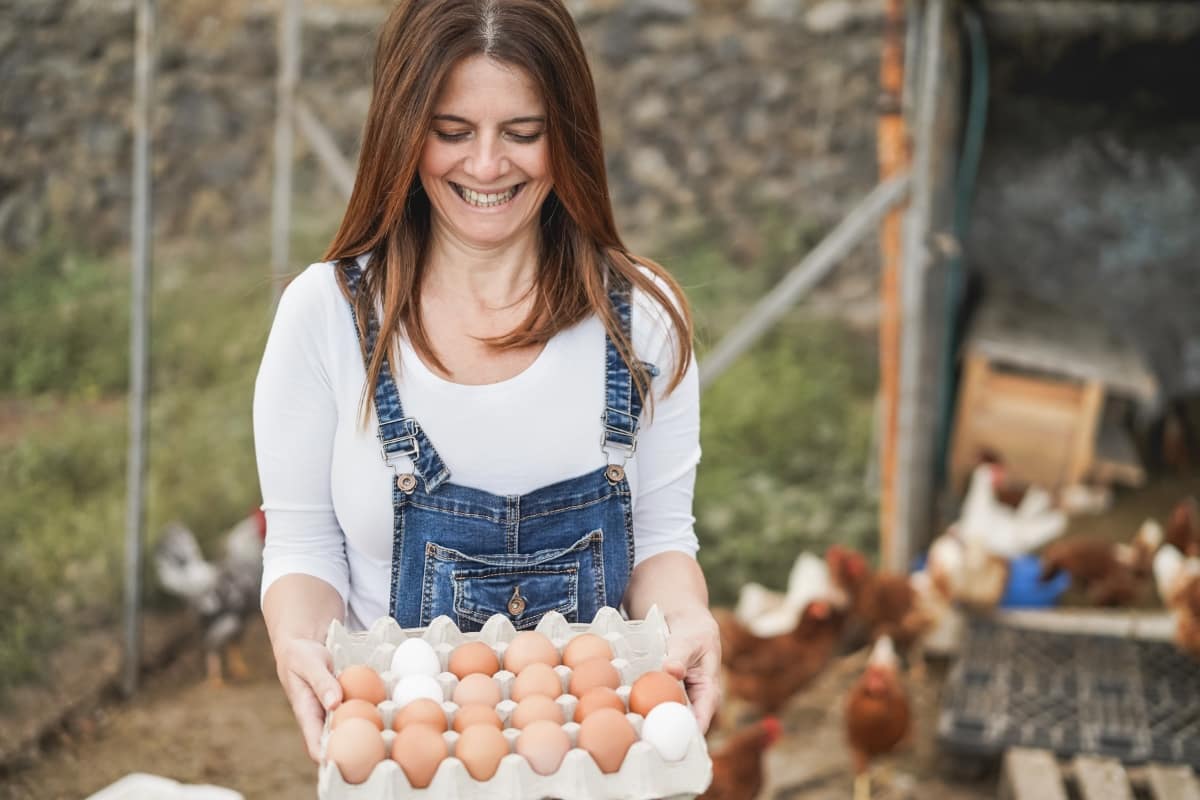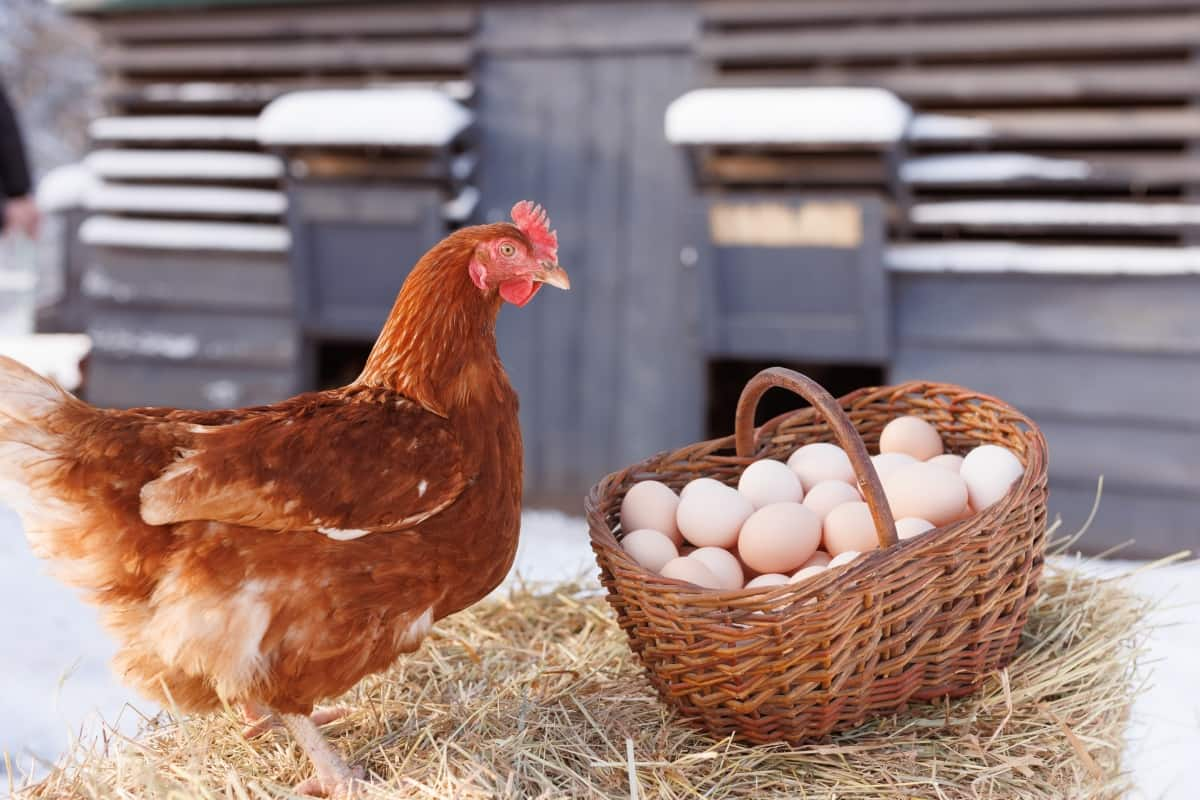When backyard poultry fails to produce eggs, it poses a perplexing and vexing challenge for their caretakers. Understanding why hens stop laying is crucial to improving backyard chicken egg production. Various factors, including egg-laying problems in chickens, can contribute to this issue, such as nutritional deficiencies in laying hens, inadequate light exposure, stress, the age of the chickens, lack of water, and improper housing conditions.

Addressing these challenges can help ensure proper hydration for laying hens, provide optimal housing for egg-laying chickens, and ultimately, increase chicken egg yield. Solutions for non-laying backyard chickens might involve tackling common health issues, dealing with broody chickens, managing parasites, adjusting to seasonal changes, mitigating environmental stressors, understanding chicken breeds and egg-laying rates, and maintaining regular egg collection frequency to prevent egg-laying decline in chickens.
Top 10 Reasons Your Chickens Aren’t Laying Eggs
Insufficient Light Exposure
Light exposure is critical in chicken egg laying, as hens require daylight hours to produce eggs efficiently. When there is insufficient light, whether due to shorter days in winter or inadequate artificial lighting in the coop, chickens might cease to lay eggs; providing supplemental light to ensure 14-16 hours of light exposure daily can significantly improve egg production.
It’s essential to mimic natural daylight patterns to prevent stress on the chickens, which could further impede egg laying. Adjusting light exposure is a practical step in preventing egg-laying decline in chickens and can help maintain consistent production throughout the year.
Nutritional Deficiencies
Nutritional deficiencies in laying hens are a common cause of decreased egg production. Laying hens have specific dietary needs that differ from other chickens, requiring a balanced intake of calcium, protein, and essential vitamins to produce eggs effectively. Lack of adequate nutrition can lead to egg-laying problems in chickens, such as soft-shelled or irregular eggs.
Optimizing backyard chicken egg production involves feeding hens a nutritious layer feed alongside oyster shells for calcium supplementation and granting access to various forages, thus enhancing laying performance and addressing nutritional deficiencies.
Stress Factors
Stress effects on chicken egg laying are well-documented, with various stressors, including environmental changes, predator threats, and pecking order disputes, potentially causing hens to stop laying eggs. Creating a tranquil and safe setting can reduce the impact of stress on egg production disruptions.
Practices such as regular handling to accustom chickens to human interaction, providing ample space to reduce overcrowding, and implementing predator-proof housing can alleviate stress in laying hens. Recognizing and minimizing environmental stressors on laying hens is crucial in maintaining optimal egg production.
Age of the Chickens
Age impact on hen egg production is unavoidable, with chickens naturally experiencing a decline in egg-laying rates as they age. Most hens start laying at around six months of age and reach peak production in their first year. After that, egg production gradually decreases each year.
In case you missed it: Sand Bedding for Chickens: Ultimate Guide to Using Sand in Your Chicken Coop

Understanding the life cycle of backyard chickens can help keepers adjust their expectations and management practices accordingly. While it’s impossible to prevent aging, maintaining optimal care, nutrition, and living conditions can help older hens continue to lay at their best capacity for as long as possible.
Lack of Water
Ensuring proper hydration for laying hens is essential for maintaining egg production. Water is a critical component of egg formation, and even a brief shortage can disrupt the laying process. Hens require constant access to fresh water, increasing their needs in hot weather or during peak laying periods. Regularly cleaning and refilling water containers and monitoring water intake, especially during extreme temperatures, can help prevent a decline in egg laying due to dehydration or heat stress.
Improper Housing Conditions
The ideal housing for egg-laying chickens ensures a hygienic, secure, and cozy setting that fulfills their physiological and behavioral requirements. Inadequate housing conditions, including overcrowding, insufficient ventilation, absence of nesting boxes, and inadequate roosting space, can cause stress and health problems, ultimately decreasing egg production.
Providing spacious, well-ventilated coops with sufficient nesting boxes, perches, and protection from the elements and predators can create a conducive environment for chickens to lay eggs consistently. Regular maintenance and cleanliness of the coop also prevent parasites and diseases that can affect chicken egg production, ensuring a healthy flock and steady egg yield.
Health Issues and Parasites
Common health issues in laying chickens, ranging from respiratory infections to reproductive disorders, can significantly impact their ability to lay eggs. Parasites, internal like worms and external like mites and lice, further exacerbate these health problems, leading to decreased egg production.
Regular health check-ups, maintaining a clean coop environment, and implementing a strategic deworming and parasite control program are crucial to addressing these challenges. Prompt identification and treatment of health concerns can effectively halt their progression and safeguard the overall flock, thereby maintaining consistent egg production.
Breeding Season and Broodiness
During the breeding season, some hens may become broody, showing a strong desire to sit on and hatch eggs, which naturally leads to a halt in egg production. Dealing with broody chickens involves either leveraging this natural behavior for breeding purposes or implementing strategies to discourage broodiness and encourage the hen to resume laying.
In case you missed it: Ultimate Guide to Cinnamon Queen Chicken: A Comprehensive Guide for Beginners

This can include removing eggs promptly, providing a less comfortable nesting environment, or temporarily isolating the broody hen in a well-lit, comfortable space until she loses the inclination to brood. Understanding and managing broodiness effectively can help maintain steady egg production in backyard flocks.
Excessive Egg Collection
While regular egg collection is necessary to encourage consistent laying, excessive egg collection or disturbing the nests too frequently can stress hens and disrupt their laying patterns. Egg collection frequency and laying rates are interconnected, with the best practice being to collect eggs at least once a day, at a consistent time, to minimize stress and prevent issues like egg eating or broodiness. A calm, secure environment around the nesting area allows hens to lay in peace, supporting optimal egg production rates.
Environmental Changes
Environmental changes, including extreme weather conditions, sudden shifts in temperature, or relocation, can stress chickens and lead to a temporary decline in egg laying. Seasonal changes in egg laying are also common, with production typically decreasing in winter due to reduced daylight hours and colder temperatures.
In case you missed it: Ultimate Guide to Marsh Daisy Chicken: Breeding, Raising, Diet, and Care

Adapting the coop to protect against adverse weather, gradually acclimating chickens to significant changes, and providing supplemental light and warmth during colder months can help mitigate the effects of environmental stressors on laying hens, ensuring a consistent egg supply throughout the year.
Conclusion
Addressing factors like health issues, parasites, breeding season broodiness, environmental changes, and management practices such as excessive egg collection is essential for maintaining and improving backyard chicken egg production. Ensuring hens are healthy, well-nourished, stress-free, and optimal living conditions can significantly increase chicken egg yield.
Recognizing the natural cycles and behaviors, such as age-related declines in production and seasonal variations, allows for better planning and care. By diligently attending to these aspects, poultry keepers can effectively prevent and overcome the common challenges associated with chickens not laying eggs, leading to a thriving, productive flock.
- Feed Your Flock for Less: Top 10 Tips to Save on Chicken Feed
- Ultimate Guide to Ossabaw Island Hog: Breeding, Raising, Diet, and Care
- Hatching Answers: The Top 10 Reasons Your Chickens Aren’t Laying Eggs
- Eggs and Economics: Breaking Down the Cost of Raising Backyard Chickens
- Defend Your Greens: Proven Methods to Keep Iguanas Out of Your Garden
- Ultimate Guide to Cinnamon Queen Chicken: A Comprehensive Guide for Beginners
- Ultimate Guide to California Tan Chicken: Breeding, Raising, Diet, Egg-Production and Care
- Ultimate Guide to Marsh Daisy Chicken: Breeding, Raising, Diet, and Care
- 10 Types of Chicken Farming Businesses You Can Start for Profits